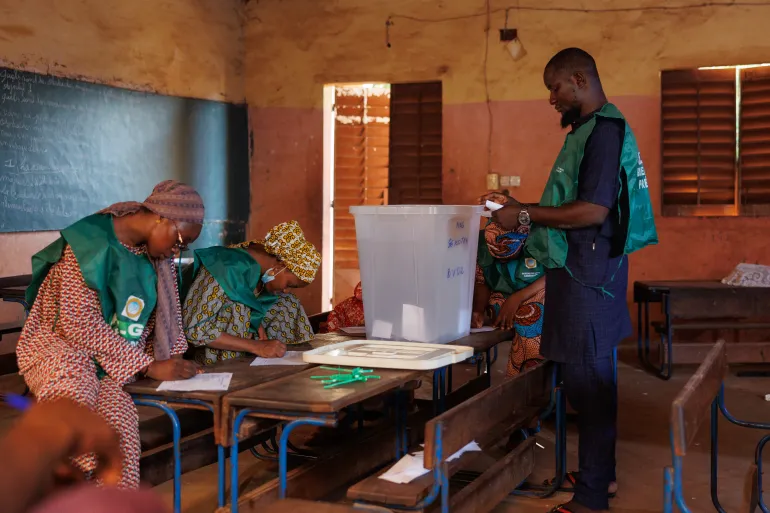According to provisional results announced by Mali’s electoral authority on Friday in Bamako, the Malian population has strongly endorsed a new constitution presented by the ruling military junta. The draft has garnered an affirmative vote from 97% of the electorate.
Since their ascent to power in 2020, the military has projected the draft constitution as a fundamental tool in reshaping Mali, a nation grappling with pervasive jihadism and a complex array of crises.
However, the voting process witnessed a series of incidents and irregularities, as reported by observers and critics of the reform. The electoral commission stated that the voter turnout stood at 39.4%.
The newly ratified constitution has been widely criticised, with detractors arguing that it has been customised to ensure the continued reign of the colonels beyond the upcoming presidential elections in February 2024. This, they assert, contradicts their initial promise to cede power to civilians post-election.
Voting in several central and northern localities was hampered by fears of jihadist attacks or political discord. Many Malians who cast their vote on Sunday have expressed hope that the approval of the new constitution will be a positive turning point for their nation, which has been besieged by Islamic extremist violence for the past decade.
The ratified draft proposes a bicameral parliament comprising the National Assembly and a newly formed Senate. Up until this point, Mali has functioned with only a National Assembly.
The draft also bolsters the position of the President of Mali, a move that has stirred significant political controversy. With the approval of the new constitution in the recent referendum, the military rulers and regional authorities hope to pave the way for elections and a transition back to civilian rule.
The proposed new constitution, crafted by the transitional council, includes controversial clauses. Supporters believe these clauses will fortify fragile political institutions, while adversaries warn that they grant excessive power to the president.
According to the revised constitution, the president will be responsible for “determining the policies of the nation,” a role currently assigned to the government under the existing constitution, which was established in 1992.
The president will have the authority to appoint and dismiss the prime minister and cabinet members. The government will be answerable to him, rather than to the parliament as is presently the case.
Additional clauses offer amnesty for those involved in previous coups, propose public finance oversight reforms, and mandate that parliamentarians and senators disclose their wealth in an effort to curb corruption.
Observers noted several security incidents during the vote. Gunmen invaded polling stations in a number of villages, causing voters to scatter and bringing voting to a halt, whilst destroying voting materials.
In the vast northern areas of Mali under the control of armed groups associated with Al-Qaeda and ISIL (ISIS), voting was largely non-existent.
The United Nations and regional entities such as the Economic Community of West African States (ECOWAS) view the referendum as a critical gauge of the military government’s commitment to the transition and the holding of a nationwide democratic process.
Since August 2020, Mali has been under military rule, when army officers, dissatisfied with the failure to combat armed groups, ousted the elected president, Ibrahim Boubacar Keita.
Image Credit: Ousmane Makaveli/AFP





